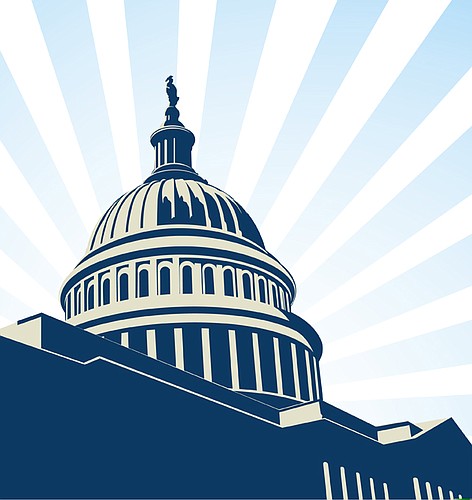- November 21, 2024
-
-
Loading

Loading

State economists say tourism could slip
Tourism has been one of the bright spots in Florida's modest economic recovery. It bounced back more quickly and has been strong the past few years.
However, seemingly intractable economic and financial problems in Europe are expected to put a dimmer on that bright spot over the next two years.
State economists are predicting a slowdown in tourist travel to Florida from all European countries, not just the southern tier of countries that are in the most trouble. Germany and Great Britain are two of the biggest overseas tourist feeders to Florida, and residents from those countries and Europe as a whole will be less apt to travel here through 2014 because of weak economies and uncertainty in the Eurozone. The economists predict a 2% decline in overseas travel to Florida.
However, Canada could pick up some of the slack as lower gas prices may provide a 6% bump in Canadian tourists through the end of next year — following an 11% decline in the first quarter of this year when gas prices spiked.
Otherwise, economists with the state, in their regular refining of economic projections and state revenues, predict Florida will continue its sluggish recovery. Economists from the Legislature and the governor's office meet regular to adjust revenue projections.
“We are not expecting any dramatic changes in our previous forecast,” says Amy Baker, coordinator of the Legislature's Office of Economic and Demographic Research. “We are making some minor adjustments.”
The state's improving housing market could be slowed or even reversed with another wave of foreclosures the state is expecting, which impacts local government revenues more than state revenues.
Obamacare implementation to drive up health insurance costs
While it's too early to tell the full effects of Obamacare on Florida's health care system, several industry members agreed on one prediction: The cost of health insurance will go up.
Two hours of testimony recently before the Florida Health Insurance Advisory Board by leaders in the managed-care industry made that prediction a not particularly bold one. The increases are essentially built into the bill.
The Affordable Care Act, aka Obamacare, requires insurers to pay about $8 billion in fees to the federal government in 2014. That amount will rise to about $14 billion by 2018. There is only one place insurers can get that from -- consumers who have private health insurance.
“These premium increases will be seen soon in rate filings,” Michael Gardner, president of CEO of the Florida Association of Health Plans, told the board.
Others said such an outcome would likely mean that small businesses -- which employ most people in Florida, would feel the pressure to drop health care coverage for their employees.
But the problem of uncontrolled expenses extends beyond Obamacare.
State analyst Ed Haislmaier told the advisory board that even if a new Congress and administration eliminate the law, the continually rising costs of health care and insurance would probably force that outcome eventually.
Florida to get $50 million for transit
A little good news for construction companies whose business includes building transit stations, or servicing the transit fleets. The U.S. Department of Transportation is sending about $50 million to Florida for 14 projects around the state. The grants are part of $787 million for public transit in 48 states.
The largest projects were $15 million for Gainesville and $10 million for Miami-Dade County.
On the Gulf Coast, three counties are getting a piece of the pie:
• Lee County will get $5 million to replace its current 30-year-old bus transit facility with a new, LEED-certified transit administration, operations, and maintenance facility to handle more passengers.
• Hillsborough Area Transit Authority will receive $4 million to replace diesel buses and gasoline vans with new and additional buses. Vehicles to be replaced are old and the additional ones are needed to handle an increase in transit services for the disabled.
• Pinellas Suncoast Transit Authority will get $2.6 million to replace old buses with buses powered by diesel hybrid-electric systems outfitted with automatic vehicle location features, real-time passenger information, and other state-of-the-art features.
Seminole gambling pact gets an early jump
Florida House Speaker Will Weatherford and Senate President Don Gaetz are outspoken opponents of expanding gambling in Florida and worked against last session's attempts to legalize massive casinos in Miami and maybe Tampa.
However, acknowledging that gambling is a growing business in Florida, they are pushing for a holistic approach, looking at all the gambling venues and revenues in the state to map out a direction.
With that in mind, the men told the Miami Herald that they want to look at the Seminole tribal compact governing gambling at the tribe's seven casinos, which send $233 million annually to the state's coffers.
With its recently completed $75 million expansion, the Tampa Hard Rock Casino became the fourth largest in the nation, larger than most in Las Vegas or Atlantic City. It employs 3,300 people.
The Seminole tribe has a large Hard Rock Casino in Tampa and a smaller casino in Immokalee, in Collier County. Under the compact with the state, it has the exclusive rights to offer blackjack and other popular gambling tables through 2015. But with the push from the major Las Vegas casinos -- which pose a dire threat to the Seminole casinos -- the legislative leadership is looking to possibly expand the compact beyond 2015. The exclusive portions would be a temporary block on major casinos operating the big money-maker tables.